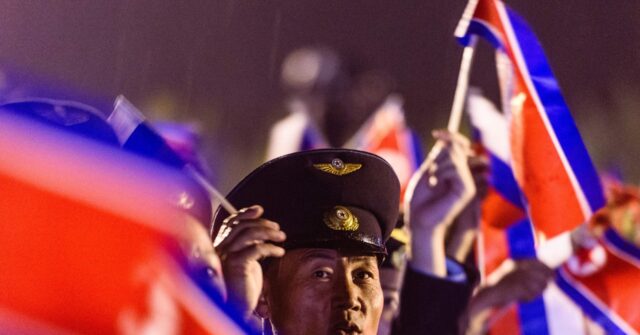In a recent congressional event, South Korean Defense Minister Kim Yong-hyun expressed a strong belief that North Korea has deployed soldiers to support Russia’s ongoing invasion of Ukraine, a scenario he described as “highly likely.” He elaborated that the likelihood of North Korean forces suffering casualties in Ukraine is also considerable. Kim’s remarks were part of a broader assessment of the escalating military collaborations between the two communist nations. He pointed out that North Korea’s military alliance with Russia is underscored by a mutual treaty, resembling a formal military alliance that includes provisions for mutual defense in the event of an attack. This assertion highlights a growing military relationship that has raised regional and global concerns.
The nature of this military cooperation appears to be reciprocal, as both nations have sought to bolster ties through recent diplomatic exchanges. Kim Jong-un’s rare visit to Russia in September 2023, where he met with President Vladimir Putin, is emblematic of this collaboration. During the visit, Kim was gifted advanced military technology and weaponry, including kamikaze drones that may violate international sanctions. This partnership was further solidified during Putin’s visit to Pyongyang earlier in 2023—marking his first visit since the year 2000—where both leaders inked the critical mutual defense treaty. This collaboration comes against a backdrop of military aggression, with North Korea’s long-standing conflict with South Korea and Russia’s invasion of Ukraine.
The agreement between North Korea and Russia carries significant implications, particularly as both countries find themselves entangled in ongoing military conflicts. North Korea has been in a state of war against South Korea since the Korean War, with an armistice signed in 1953 that has prevented active warfare. Meanwhile, Russia’s involvement in Ukraine began with the annexation of Crimea in 2014 and escalated to a full-scale invasion in 2022, a situation that has prompted North Korea to openly support Russia’s actions. The complexity of both nations’ military engagements raises questions about their commitments under the newfound alliance, specifically regarding the deployment of North Korean troops in the Ukraine conflict.
While there is enthusiasm from North Korean officials regarding support for Russia’s military operations, they have refrained from outright acknowledgment of sending troops to Ukraine. Reports from Ukrainian intelligence suggest that there have already been instances of North Korean casualties in combat against Ukrainian forces. For instance, a report indicated that six North Korean soldiers were killed in an attack by Ukrainian forces in the Donbas region. Such claims, while not independently verified, highlight the potential involvement of North Korean troops in the conflict and reflect an anxious military partnership as the war evolves.
As speculation about North Korean troops on the battlefield intensifies, the level of desire and need for military support from both nations becomes apparent. Reports surfaced early in the alliance discussion that North Korea may send engineers to aid in military efforts. However, Putin’s dismissal of needing assistance from any allied nations casts doubt on the veracity of such claims. Despite official denials, the recruitment of foreign nationals—including individuals from nations like India and Cuba—by Russia for combat roles in Ukraine has raised concerns about the lengths to which countries may go to bolster military manpower, including direct or indirect involvement from North Korea.
The Institute for the Study of War has predicted that as Russia’s military resources dwindle, the Kremlin will increasingly rely on partnerships with nations like North Korea to persist in its campaign against Ukraine. The deepening military relationship between Russia and North Korea may not only point to a strategic alliance in the ongoing conflict but also serves as a harbinger of Russia’s intentions to strengthen ties with other nations, such as Iran and China. The international community closely monitors these developments, understanding that the implications of this alliance extend beyond bleak military realities, potentially reshaping the geopolitical landscape as both nations navigate the pressures of sanctions and military engagement.

